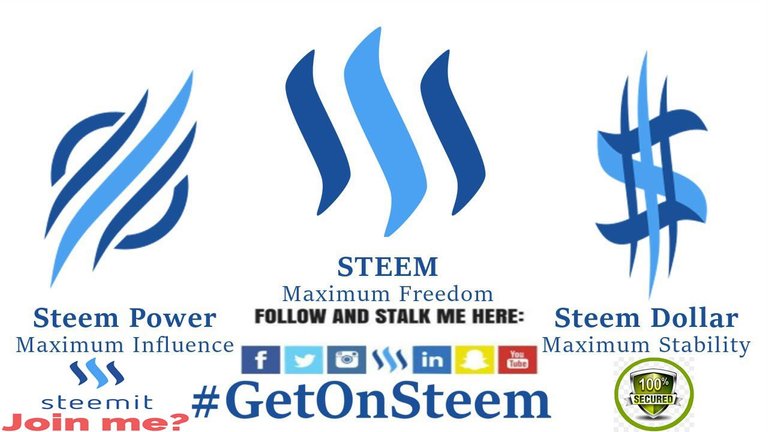Online course Review: Scanning GC-Orbitrap
In the fourth portion of Thermo Fisher's online class arrangement, senior applications pro Dominic Fisher holds a Q&A on the Orbitrap GC-MS.

innovation has enabled researchers to break new ground to pick up a more extensive and more profound comprehension of their examples using high-determination, precise mass (HRAM) investigation. In a current online course the maximum capacity of the innovation was investigated and Dominic Roberts answers the pick of the inquiries inquired.
https://www.newfoodmagazine.com/company_profile/40393/thermo-fisher-scientific/ multi-award-winning Orbitrap https://www.newfoodmagazine.com/news/43410/chemical-food-safety-testing-covance/
When utilizing GC-Orbitrap, what settling force would you suggest for a profiling study?
The tests appeared in this online course were keep running at 60,000 determination (FWHM at m/z 200) and this is the mode that we would use in normal as it gives sub 1ppm mass exactness with a high number of information focuses over a crest for strong deconvolution. At this determination mode the sweep speed is around 7 spectra/second, so over an ordinary GC pinnacle of around four seconds we have 28 focuses over the pinnacle. The determination is essential for two reasons; right off the bat, it gives determination of target particles from grid particles against a perplexing substance foundation. The high determination turns out to be to a great degree capable when the specimen is mind boggling, which is regularly the case with profiling contemplates where the example planning is insignificant to protect however many mixes as could reasonably be expected. Besides, it gives us little mass blunders paying little mind to top power, with the goal that when we recognize a known or obscure compound we can be certain that it is the right outcome. This is especially important for questions as it decreases the quantity of conceivable basic organizations that should be assessed. For instance you may have 20 conceivable formulae at 5ppm, however maybe just 1 or 2 to assess at < 1ppm. Notwithstanding mass exactness, the isotopic example can likewise be coordinated against the hypothetical example to give a further purpose of distinguishing proof. The individual isotopes would likewise have great mass exactness which brings about snappier recognizable proof and with higher certainty.
Would i be able to create and utilize my own particular ghostly library for GC-Orbitrap?
Indeed, this should be possible and by having a high determination Orbitrap library the trust in coordinated mixes will be high and the quantity of conceivable matches frequently diminished to one proposal. A custom library can be curated inside the NIST MS seek interface and worked in the typical route as you would an ostensible mass library. The favorable position with a high determination precise mass library is that the spectra will have a high inquiry list result in light of the fact that the spectra were obtained on a similar instrument, and also the spectra are exact mass so there are not very many proposed matches contrasted and those utilizing ostensible mass. The procedure to construct a library is basic; the deconvoluted spectra, as found in the online course, can be sent out to NIST MS Search from TraceFinder and added to any library either existing or another one made. I might likewise want to say that we have built up a HRMS contaminants library containing exact mass spectra for more than 700 mixes, including 500 pesticides. There is likewise a GC-Orbitrap Metabolomics library accessible containing more than 850 metabolite spectra. For every passage in the library the hypothetical correct mass of real particles and spectra, decided from curated Orbitrap GC-MS information, is incorporated.
ARTICLE
Online class Review: Scanning GC-Orbitrap
In the fourth portion of Thermo Fisher's online class arrangement, senior applications authority Dominic Fisher holds a Q&A on the Orbitrap GC-MS.
orbitrap
Thermo Fisher Scientific's multi-grant winning Orbitrap GC-MS innovation has enabled researchers to break new ground to pick up a more extensive and more profound comprehension of their examples using high-determination, precise mass (HRAM) examination. In a current online course the maximum capacity of the innovation was investigated and Dominic Roberts answers the pick of the inquiries inquired.
When utilizing GC-Orbitrap, what settling force would you prescribe for a profiling study?
The analyses appeared in this online class were keep running at 60,000 determination (FWHM at m/z 200) and this is the mode that we would use in standard as it gives sub 1ppm mass precision with a high number of information focuses over a crest for vigorous deconvolution. At this determination mode the output speed is around 7 spectra/second, so over a commonplace GC pinnacle of around four seconds we have 28 focuses over the pinnacle. The determination is vital for two reasons; initially, it gives determination of target particles from lattice particles against an unpredictable concoction foundation. The high determination turns out to be to a great degree capable when the example is unpredictable, which is frequently the case with profiling ponders where the specimen planning is insignificant to save however many mixes as would be prudent. Furthermore, it furnishes us with little mass blunders paying little mind to top force, so when we recognize a known or obscure compound we can be sure that it is the right outcome. This is especially profitable for questions as it lessens the quantity of conceivable natural arrangements that should be assessed. For instance you may have 20 conceivable formulae at 5ppm, yet maybe just 1 or 2 to assess at < 1ppm. Notwithstanding mass precision, the isotopic example can likewise be coordinated against the hypothetical example to give a further purpose of distinguishing proof. The individual isotopes would likewise have great mass exactness which brings about faster ID and with higher certainty.
Would i be able to create and utilize my own ghastly library for GC-Orbitrap?
Truly, this should be possible and by having a high determination Orbitrap library the trust in coordinated mixes will be high and the quantity of conceivable matches frequently lessened to one recommendation. A custom library can be curated inside the NIST MS look interface and worked in the typical path as you would an ostensible mass library. The favorable position with a high determination precise mass library is that the spectra will have a high hunt list result on the grounds that the spectra were gained on a similar instrument, and furthermore the spectra are exact mass so there are not very many recommended matches contrasted and those utilizing ostensible mass. The procedure to assemble a library is basic; the deconvoluted spectra, as found in the online class, can be sent out to NIST MS Search from TraceFinder and added to any library either existing or another one made. I might likewise want to say that we have built up a HRMS contaminants library containing precise mass spectra for more than 700 mixes, including 500 pesticides. There is likewise a GC-Orbitrap Metabolomics library accessible containing more than 850 metabolite spectra. For every passage in the library the hypothetical correct mass of real particles and spectra, decided from curated Orbitrap GC-MS information, is incorporated.
Application note: HPAE-PAD assurance of sugars in nectar to assess tests for quality and corruption
Elite Anion Exchange chromatography combined with Pulsed Amperometric Detection (HPAE-PAD) is a standout amongst the most valuable systems for sugar conclusions. This application note shows a strategy to measure fructose and glucose, in addition to the whole profile of di-and trisaccharides in nectar.
Snap here to discover more
What is the output speed on the GC-Orbitrap and does it affect on the affectability?
On the QExactive GC the sweep speed (spectra/second) is specifically identified with the determination level chose. There are four determination levels accessible on the QExactive GC-15, 30, 60 and 120K. At 120K the sweep speed is around 3. 5 spectra/second, 7 spectra/second at 60K and expanding down to 15K. Basically, the more extended particles spend in the Orbitrap the higher the determination, yet slower the output speed. However, above all, the affectability does not change essentially whether you are utilizing 15K or 120K mass determination. So we have the perfect circumstance of approaching the most astounding determination levels while keeping up greatest framework affectability. At every determination level the sweep speeds are still sufficiently quick for GC, so it's conceivable to have very much characterized deconvoluted crests.
What sort of mass alignment ought to be utilized to accomplish sub 1ppm mass exactness?
This is the place the QExactive GC is anything but difficult to work and it guarantees that, paying little heed to a clients specialized foundation, a similar astounding, touchy information is produced. The QExactive GC can be tuned, aligned and release checked in less than five minutes. The framework is adjusted preceding examination and this is substantial for 25 hours, after which the product will helpfully show this has lapsed. Actually the mass exactness is kept up for a long time a short time later with no further alignment. On the QExactive GC perfluorotributylamine (FC43), is diffused into the source and the framework aligned to the majority in this range (particles 69, 100, 131, 364, 515, 502). These masses are perfect for a run of the mill full output securing scope of 50-600. It is additionally conceivable to do a higher mass alignment (>600) should that be required.
Would i be able to obtain in SIM and full sweep at the same time on the QExactive GC?
For this situation SIM remains for "chose particle checking" and this is the place it is conceivable to seclude a specific mass in the quadrupole. This test should be possible either to perform MS/MS on a specific mass for auxiliary explanation, or for a focused on investigation where a specific particle is chosen in the quadrupole, with the goal that marix particles are rejected from the C-Trap. In reply to the inquiry, indeed, it is conceivable to run SIM in the meantime as a full output explore. This is executed as two capacities – one capacity is full sweep and the other SIM, where a particle or particles are chosen in the quadrupole. This is anything but difficult to set up in the QExactive technique editorial manager, just simplified the analysis sort and characterize the majority you need to choose in the quadrupole and the full sweep mass range to gauge.
Interested to learn more?
This webinar forms part of a series of five food integrity webinars supported by Thermo Fisher Scientific.
 https://www.newfoodmagazine.com/thermo-fisher-scientific-webinar-series-2017/
@shahriarsamir
https://www.newfoodmagazine.com/thermo-fisher-scientific-webinar-series-2017/
@shahriarsamir